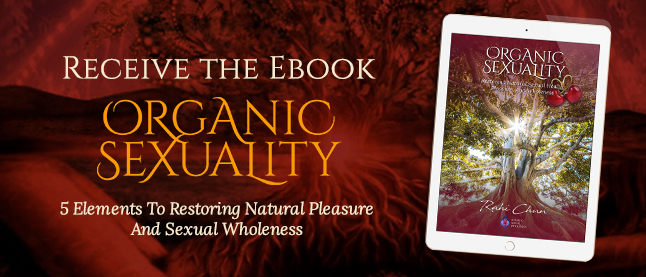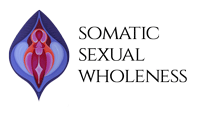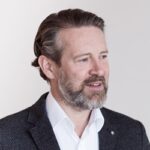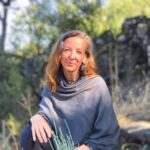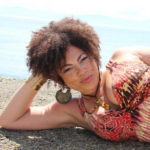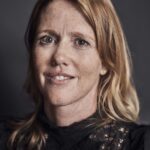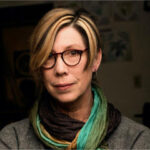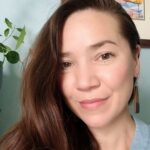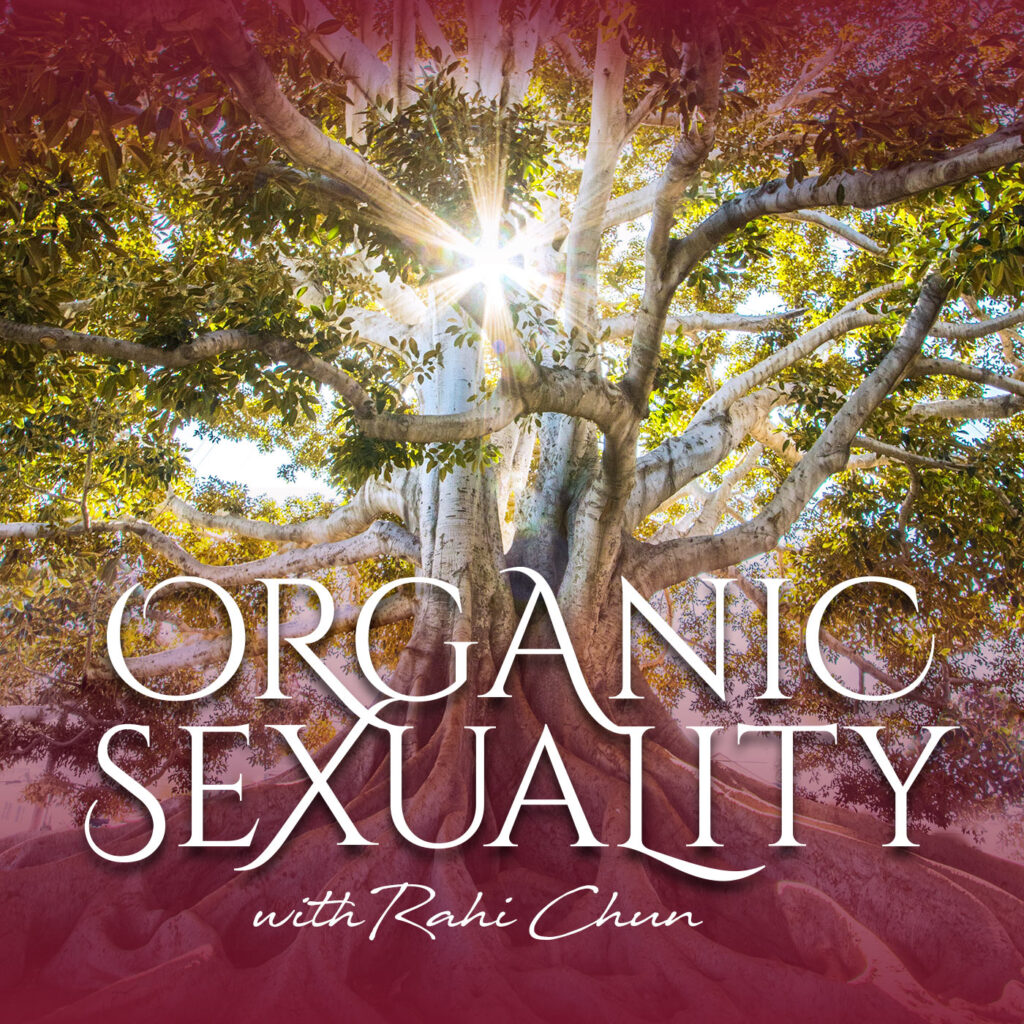
How to Own & Integrate Shadow Aspects of Our Sexual Selves w/The Light/Dark Institute
Share this episode:
My friend Christina first told me about Light/Dark Institute and how Leslie and Tani tailor-design immersive 3-day retreats for individuals and couples interested in embodying their previously disowned shadow aspects within the parameters of dom/sub ceremonies with clearly defined boundaries. When I reached out to them to inquire about workshops, fortunately, one was being curated in Boulder and I was excited to experience their work first-hand. Over the 4 days of identifying, embodying and relating from previously disowned dark archetypes with about 25 other participants relating from their “dark-types,” many of us experienced an integration and expansion of personal power that comes from accepting and consciously taking ownership of an aspect that was previously judged, shamed or in some way disowned. The Dom/Sub ceremonies that culminated our time together, after exploring safe words, identifying and vocalizing our boundaries, and holding space for our partners to embody theirs, many of us came to discover new realms of sexual, sensual and personal expressions, experiences and energies inviting us to inhabit more fully our true and whole selves. I was taken by the depth of integrity and skill with which Tani and Leslie facilitated our time together and the conscientiousness with which they held such a safe, sacred and playful container.
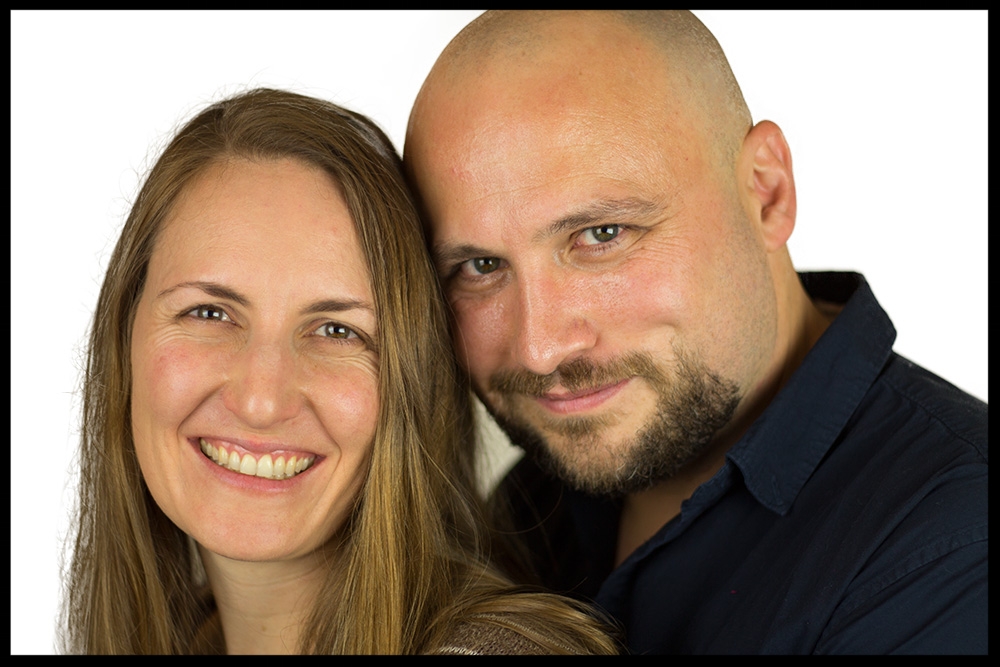
Tani Thole and Leslie Rogers have dedicated their lives to the study and exploration of the human psyche and its relationship with the non-material world, through spirituality, psychology, personal development, sexuality, and embodiment. They founded the Light Dark Institute out of a passion for sharing the ways that exploring our dark sides can radically awaken and liberate us from the old patterns that have held us back and kept us in judgement of ourselves and the world around us.
In their own words: “To access full approval for ourselves and the world around us, and thereby step into our full power, vulnerability, intimacy, and freedom, it is necessary to touch the darker places inside of ourselves. It can be terrifying to explore these aspects of ourselves when we have childhood traumas and a lifetime of societal conditioning telling us it’s not safe to let these parts be seen. At the Light Dark Institute we create safe spaces for people to explore their shadow sides and tap into the raw force of their personal power and their own deepest potential, so they can transform their own lives and the world around them….
Our work teaches people to engage the darker, unknown aspects of themselves and their world with play and curiosity, so that they can step into a life of living and loving with full power, full surrender, and deep fulfillment.”
We explore:
How identifying, embodying and relating from previously disowned shadow aspects of the Self can be amongst the most empowering practices for personal and sexual wholeness.
How taking ownership of previously disowned aspects of the Self is “deep end of the pool” work, and requires having done a considerable amount of self-disocvery to be resourced enough to face one’s shadows.
How dark work involves looking into the most judged, shamed, and early aspects of one’s Self – and how the compulsion to reject is also an invitation to examine and integrate.
How there’s a point where light and dark meet within us, and by going fully into the dark, one experiences new realms of light & transformation, and by going fully into the light, we are invited to befriend & accept our dark, where an infinite dance can unfold of perfect acceptance of everything we are.
How the Light/Dark Experience for individuals and couples involve a deep dive into a 3- day/2-night container utilizing kink, bondage, and dom/sub play – clearly defined by boundaries, safe words, desires, & after-care and guided by the client’s intentions of how they want to inhabit their lives on the other side.
How opening to one’s previously disowned aspects can reveal deep desires that may not have been felt or given permission – or dismissed as entitled, selfish or needy…. and by doing so, can unleash an enormous amount of energy when space for them is finally granted.
How a partner’s aversion to their partner’s sexual kink or desire can serve as a great indicator of what they’ve been shaming or disowning within themself.
How the degree of safety and conscientiousness devoted to the Sub or receiver’s boundaries, desires, consent and after-care allows for the Dom’s freedom to reclaim and re-inhabit their previously disowned selves.
How “life as play” leverages humor in how we relate with others, whilst “dark awakening” can liberate a shadowed aspect disregarded since infancy and thus, when brought into acceptance can allow for vast unexplored terrains of the unconditioned self to be explored.
Rahi: Welcome to Organic Sexuality where we explore the restoration of pleasure, the reclamation of sexual sovereignty, and the realization of our embodied sexual nature. An invitation to honor the pleasures of your body by embodying the pleasures of your nature. I'm your host, Rahi Chun. I'm a certified somatic sex educator, a sexological body worker and creator of Somatic Sexual Wholeness. Before today's interview, an announcement that registration and immediate access to the online course, the three keys to genital disarming for reclaiming and expanding pleasure will open on July 5th for the fall cohort. For more information about the course and registration, please visit somaticsexualwholeness.mykajabi.com/3keys. Also to be notified of future retreats of embodied eros for couples learning how to touch open and commune with the erogenous areas of your partner's genitalia and their full bodies, 11 erogenous zones. Please visit somaticsexualwholeness.mykajabi.com/eros. Today we invite Tani Thole and Leslie Rogers of the Light Dark Institute to the podcast. How can we identify and embody and integrate previously disowned aspects of herself back into wholeness? Are there aspects of your sexuality that you've judged, shamed, and relegated to the shadows? And by doing so, limiting your sexual wisdom, expression, and life force,
Rahi: Tani and Leslie created the Light Dark Institute to support an access to the full approval of ourselves and the world around us by touching in into the dark, darker places inside of ourselves, and thereby inviting an ownership and embodiment of our full power, vulnerability, intimacy, and freedom.
Rahi: I am super excited today to be inviting, uh, Tani and Leslie to the podcast. Um, you know, there's so much to explore here, um, but let me, let me introduce to you guys the audience, how I know Leslie and Tani. Um, I had the pleasure of participating in one of their four day workshops very recently, just a couple of months ago, and this is after hearing about their work, gosh, probably seven or eight years ago. So you guys have been on my radar for that long, and I, I was so just delighted to have the opportunity to experience your very, um, conscientious and impeccably facilitated workshop, you know, in person. It was really, really a wonderful experience for me. Tani Thole and Leslie Rogers have dedicated their lives to the study and exploration of the human psyche and its relationship with the non-material world through spirituality, psychology, personal development, sexuality, and embodiment.
Rahi: They founded Light Dark Institute out of a passion for sharing the ways that exploring our dark sides can radically awaken and liberate us from the old patterns that have held us back and kept us in judgment of ourselves and the world around us, to access full approval of ourselves and the world around us, and thereby step into our full power, vulnerability, intimacy and freedom. It is necessary to touch the darker places inside of ourselves. It can be terrifying to explore these aspects of ourselves when we have childhood traumas and a lifetime of societal conditioning telling us it's not safe to let these parts be seen at the Light Dark Institute. We create safe spaces for people to explore their shadow sides and tap into the raw force of their personal power and their own deepest potential so they can transform their own lives and the world around them. Tani and Leslie, thank you so much for being guests on this podcast. It's great to see you guys.
Tani: Great to see you. Thank you, Rahi. Thank you so much for having us, for Marvel to be here. Yeah. So great to see you and hello to everybody who's listening or watching. Yeah,
Rahi: Right on. You know, I'd like our audience to clearly understand the realms of spaces that you hold. So, I experienced the four day workshop, which in invited about, I think, 25 participants to identify, embody via somatic exercises, interact and relate with others from previously disowned shadow aspects. So our dark ar archetypes or dark types of ourselves, which culminated and ceremony work of fully embodying and creating new relational imprints, exploring these dark types in an intentional container with agreed upon boundaries, safe words, gestures, and aftercare. I know a lot of your service is also holding space for very personalized one-on-one or couples retreats, um, in ceremony, based on very clarified intentions about taking full ownership of disowned shadow aspects of the South. Could you guys share in your own words the intention of each of your offerings?
Tani: Yeah. Wow.
Leslie: The reason we call it light dark is to create a, a, a separation between those two approaches. And, uh, the, what we call light work is basically any time you're going in to heal, change, transform, exit, some pattern, um, it's really about progress. It's growing. It's moving in a, in a new direction. It's, it's seeing a better day and moving towards it. And what we mean by dark work is basically loving what is embracing accepting everything as it is and not trying to change it. Mm-hmm.
Leslie: Right. Um, which then can create more disowned parts that, you know, you can get into this kind of infinite wheel if you're just doing light work where you're mm-hmm.
Leslie: And realizing that that compulsion to reject is the invitation in Yes. The invitation into embodying the invitation into owning that this too is part of your experience. This this part is part of your essential self. Because on some level in the it's most objective sense, you're creating it. Mm-hmm.
Rahi: Like I think we live in a society that loves talking about the light, loves kind of showing off the light, focusing on the light. And it, it, it's really, we're really denying so much of our existence and so much of nature itself. And what you're speaking to Leslie, like, it is the judgment, it is in the denying that kind of like, allows it to fester and kind of become, you know, come out in really shadowy, unconscious ways.
Tani: Yeah, absolutely. When, when we're like, I can't see that part of me, then all of a sudden that part gets in the driver's seat and we're like, I'm not seeing what's happening. Mm-hmm.
Tani: You know, we, for us, light and dark are both equally important, and there's a time and a place for both of them. Mm-hmm.
Tani: So, so it's really feeling like, okay, is this the moment to really sit with that and, and harvest the gifts and the wisdom that are coming through this darkness mm-hmm.
Tani: You know, for, for all that it's been kind of, uh, you know, unfortunately be, become almost cliched as a symbol. But the yin yang symbol is an incredibly powerful symbol of exactly that. Mm-hmm.
Rahi: Yeah. You know, I really found that to be the case that interweaving between the light and the dark in, in the workshop, you guys layered it so beautifully, you know, like practice after practice. But really identifying, owning our disgust, owning our resistance and avoidance, and then in inviting us to take that on somatically and then to relate to other beings somatically, I found that those archetypes that I was most disgusted by are the ones that made me feel most empowered, you know, in ceremony, in, in relating with others in the various somatic exercises. I would love the audience to understand like the, the offerings that you have, because my, you know, I experienced the workshop, I had a friend who did a one-on-one intensive. I know you work with couples as well. Um, can you share if the intention, like, is the intention pretty much what you laid out, like really interweaving both the light and the dark so that we can be at peace with our whole selves and empower as a result empowered? Or are there different intentions for the couples, uh, intensive retreats or the one-on-ones that you offer
Leslie: Mm-hmm.
Tani: Day, that's our private intensive,
Leslie: It's our private intensive that we do with individuals or with couples and our group workshops. Were really kind of looking at the darkness together as a group and, um, and using our own individual darknesses to bring them together to explore with each other in this kind of, um, open-ended intention towards really embracing the darkness is, which, which is what we call the first level workshop. And our private work, like dark experiences are really about the individual and their intentions. Hmm. And I'll say, you know, what we do is we go, we, we, we enter, we create a container, we enter into direct play with our clients mm-hmm.
Leslie: And intentions are about like where you want to, they're really light oriented tools about where you want to be on the other side of this, um mm-hmm.
Leslie: Mm-hmm.
Leslie: And, you know, it kinda like, you know, I think of it as like, there's this great roomy poem that I can't think of at the moment, but it's like you're knocking on the door to your truce, to your higher self, to the divine, and you're like, please open this door if I could just get good enough. And then it's like, through acceptance, the door just opens on the other side and there you are looking at mm-hmm. Mm-hmm.
Rahi: An invitation to pause and notice your breathing right now, what are you feeling in your body as you take in the themes of this exploration? Can you feel any disowned or shamed aspects of yourself in your body that are wanting yearning, may be hungering to be acknowledged, explored, embodied, and integrated? Let's take a deep breath and feel whatever it is you're feeling and make it okay exactly as it is.
Rahi: Yeah. Yeah. And you know, I, I wanna just reflect that, you know, these, these aspects that we've shamed often come from deep childhood wounds, you know, where we've disowned because it was too dangerous to really embody or, or come from that aspect. And so it's profound work. It's profound work. I mean, the friend who shared with me their one-on-one individual retreat with you just spoke about how incredibly thorough and detailed the prep, the, the preparation leading up to the retreat is, you know, they, they clarified their intentions. They were re honed, they were kind of redefined until they really got to kind of the, the, the crystal, you know, gem of what it is that they wanted to break through around. And then like, it sounds like every day was just, you know, really embodying, taking, just kind of bringing in that disowned aspect to really embody and feel through and through and to relate, you know, with you guys in scene work so much so that when they got to the other side, like you said, Leslie, you know, the, they're on the other side of that door looking back, um mm-hmm.
Rahi:
Tani: Mm-hmm.
Tani: And in the intake process, the very first thing that we do is a very deep dive into our client's backstory. We, we have them fill out an extensive intake form, plus we do a call to really get the nitty gritty of like their childhood and family history, all of the kind of traumas and experiences of childhood. Also their sexual and relationship history. Any, you know, major, major traumas, major transformations, major accomplishments, major heartbreaks, like really we get the whole picture of their life up until then. And also where they're wanting to go in their life so that we really have a sense of what are the forces that have shaped them. And like you're saying, you know, these, these spots that come up, that both the disowned things that we don't wanna look at and the stories that we have about ourselves, and also the places we're wanting to go and the blocks that are there.
Tani: It's all so impacted by the forces that have shaped us by traumas that have happened in our lives by role models, positive and negative. You know, it's, it's so impacted by our life's journey up until that point. So we really take seriously doing a lot of research so that we really understand what our client has, has been through in their life and what's helped to shape them so that we can really hold them well. And then, as you mentioned, the intention setting process, it's not just a like, oh, hey, write some intentions on a piece of paper and we'll see you in a few weeks. It's like, it's a, it's a multi, we do calls, we're sending drafts back and forth. We're pulling things apart. We're delving into, you know, their shame stories about themselves as well as where they're really wanting to go. We're really doing a lot of feedback to help them maybe be like, okay, that one, but then, you know, you've got that intention, but it feels totally like pie in the sky.
Tani: Like what do you actually need to know and find in yourself to get to that place that you're wanting to go to? So the intentions wind up being just incredible by the time we even start the experience, because each one of them is like so packed with power and potency and also kind of a roadmap in and of itself of how to get there. And then what we're doing in the experience is really taking people through that. Like, cuz cuz here's the intention, but the grooves that they've developed over life may go that way. And it's like, how do we actually make grooves in your system to know how to get to that place where that intention is pointing you so that when you go home, and we support a lot through the integration process too, but so that when you go home, you're like, right, I know what that feels like in my body. I've been there, I've been that person. I know how to do that. I know how to be that. And oh, right here's how I remember how to get there. And that's what the integration process is, is in supporting to really make sure that those grooves keep, keep refining and honing and deepening so that there's more and more of that access.
Leslie: And, and I'll just add in what really makes it so powerful is, you know, it's funny, you can, and this is so often our clients experience, they're like, oh my God, just this one hour was like a year of therapy. Because when we actually just get in and play with the things we're so terrified of the resistance makes it seem like just the most horrendous thing, we're gonna die, we're gonna be go crazy, we're gonna be a bad person, we're gonna hurt somebody. All that stuff comes up for everybody. And it's essential that it does, because it wouldn't be dark if it didn't
Leslie: And when you get in there Wow. Like suddenly I have all this experience of all these desires that were forbidden mm-hmm. That were cut off. Yes. Mm-hmm.
Leslie:
Rahi: Mm. Mm-hmm.
Leslie: So there is, you know, I think if there's an aversion for something your partner wants, that's very interesting to us. You know, if you're just kind of like in different, then maybe you can still play and still meet in different ways. It's not a problem. But if there's a problem meeting your partner in something and you're really interested in transformation and exploring darkness, that is a great darkness to explore. And so our partners become these great mirrors for us to explore aspects of ourselves that we might have denied or exiled. And what can happen a lot with couples is they come in thinking one of them's, the other one's not one of, you know, how do we, how do we bring these core desires together? What do we do? And we get in there and realize like, oh, well what is? Well, it's, it's, uh, being interested in power, well I was interested in power in these very narrow ways, like would it look like this or that, the things I was, but when I opened up to my darkness, I realized there's a much broader spectrum mm-hmm.
Leslie:
Rahi: Wow. That is really, uh, clear. You know, like what I'm hearing is, is like if there is an aversion to something, there's some charge there and that charge means there's some juice there to explore. You know, it's very different than indifference. Right. And then if there, you know, when there is a charge there and there is something to explore when there's an ownership of a dark archetype, it just opens up all of these realms of possibilities that were not available before. Mm-hmm.
Leslie: Can I just slip it a please? A specific example how this could work? Great. It's like some cases we have someone who really wants to be like, dominated or humiliated or put down, and the other partner is very like, I don't, I don't want that. I don't like that kind of play. Like, ugh. And maybe even slightly judging their partner's desire for that mm-hmm.
Leslie: They can become blocks our intimacy. And when we embody the darkness, all of a sudden we can not only not just close the gap a little, but actually wake up like this almost on the other side. Like where things flipped around like, oh my gosh, like I actually love this more. You know, in some cases their partner won something like humiliation or to be dominated, and then their partner's like, oh, I don't want that. And then their partner gets there and is like, actually likes doing it more than the partner even
Rahi: Yeah. It's, it's exciting and really profound. Um, you know, I'm curious as we're discussing this, whether, do you find that when couples come to you guys for the three day intensives, that a lot of their intentions revolve around owning, taking ownership of previously disowned sexual aspects or, or sexual selves? Or are they more kind of overarching? Because to be honest with you, that was one of the surprises when I participated in your workshop, was that for some reason, maybe because of my past visits to your website, I thought that it would be more of an exploration of disowned sexual selves. What I found was that, as I mentioned to you as we did identify and somatically explore and relate from these disowned ar overarching dark types, that that really affected my taking ownership of different aspects of my sexual self. But I'm curious, when couples come to you, are they more kind of focused on wanting to embody and own what's been shamed about their sexuality? Or is it more kind of overarching dark archetypes
Tani: Mm-hmm.
Leslie: Quote? I love this quote by Oscar Wilde of just, um, it, it highlights I think a, a hidden truth, um, that there can be a challenge to accept, which is everything is about sex except for sex. Mm. That's about power.
Rahi: Mm. Oh, wow. Yeah. Yeah. That is a great quote.
Tani: So that, that to us feels very relevant because mm-hmm.
Tani: Mm-hmm.
Leslie: One thing I'll say is, uh, one lens you can take on the world that I think is really powerful is basically, you know, seeing all suffering, pain, all the things that we make into a problem in our lives as mm-hmm.
Leslie:
Leslie: We do this cuz that's how we stay safe. It makes so much sense. You know, there's so many situations where it makes so much sense not to feel your sexual desires, but that does not stop that energy from continuing to run. And in some cases creating disastrous messes that we don't see coming cause we're not available for feeling.
Rahi: Mm-hmm.
Leslie:
Rahi: No, no. Please
Tani: Haven't even gotten your question.
Rahi: Yeah. Know my mind's going off on tangents as well, like Yeah, yeah. Just to piggyback on something that everything is sexual and that, you know, like, I mean, of course everything's sexual, like we're sexual beings and it's all, they're all expressions of this sexual life force. And what I found, you know, really fascinating was, you know, the culmination of the workshop in Boulder, I was paired up with a, with a terrific guy and I just anni annihilated him with, you know, energetically, I just like tore his heart out. I mean, I was the dom and it was highly erotic and sexual, yet it wasn't like traditionally sexual at all. But that energy of consuming and wanting to devour someone was so freeing and liberating and, and erotic at the same time.
Tani: Mm-hmm. Yeah. Such a beautiful example. Thank you for sharing that.
Leslie: That goes, I'll just share cuz it goes exactly. So well with what I wanted to share is like, a lot of times we're afraid to go to these places, like the part that would kill and devour another being mm-hmm.
Rahi: Who wants
Leslie: To destroy mm-hmm.
Rahi: Yes.
Leslie: And so we actually become the one to destroy by our, by our fear and reactivity. Whereas when we're in love with that part of ourselves and we see it in another and we're able to, at least we, it doesn't mean we can't take care of ourselves, but we're able to tap into that empathy, that connection. Mm. We enter whole new realms of experience that, that I, you know, I've had a, a good friend of mine was about to be raped by someone in this situation that she just let herself be entered into. And she just looked up at him and she just saw love in his eyes and she just let it come through her being, and he bawled and cried in her arms all night. What was gonna become a lifetime traumatizing experience potentially became a healing experience. Mm-hmm. And not that we all need to enter that level, but that's what's possible. Mm-hmm. You know, that there's actual safety in loving what is mm-hmm.
Rahi:
Tani: Mm-hmm.
Tani: We don't want you to get retraumatized mm-hmm.
Rahi: Yeah. Yeah. It makes the whole thing work really. Um, you know, before, uh, in preparation for this call, I was going through my notes from our workshop in Boulder and there are a couple of things that I wanted to, to share that I jotted down. Letting go into the mystery of the animal body wisdom following core desires. The safer you take care of yourself, the deeper you can explore desires. Uh, it's a meditation of tracking sensations and sensation capacity in regards to voicing boundaries, feeling into, oh, this was interesting, like in the negotiation of boundaries, feeling into what would be a yes. Uh, if initially the response is a no do, are people surprised at how spiritual this work actually is? They might be coming to this work wanting to like, explore their sexual dark side, but then realize this work is so, you know, spiritual, it's really so healing and humane and, you know, we're really creating a safe container for those shamed and rejected parts of the inner child to be recognized and to be nourished and to be, you know, kind of brought out of the shadow.
Tani: Mm-hmm.
Rahi: Mm-hmm.
Leslie: So one thing I'll say is, um, since the pandemic and covid we had, we're just starting up group workshops and we've been mm-hmm.
Tani: But yeah, so at this moment our, our, you know, we're still running full, full steam with our, with our private work with the light dark experience again for individuals or couples. But the workshops at the moment, we're only offering them sort of for private communities. This is something that's, that's started where private groups are like, Hey, you know, there's, there we have this community, we want you to come teach us. Will you teach this workshop? And, and embracing the darkness really is a, it's an introductory workshop to the light dark work, but it's, again, our whole body of work is sort of in the deep end of the swimming pool. So it's not designed for, it's not really designed for, for people who are new to a personal growth journey, we don't recommend it. Uh, you know, we, we would recommend doing more light work first doing more mm-hmm.
Tani:
Tani: And light work can be seen as having a little bit more to do with like the human heart and the way that our hearts care for things. And we're like, we see, we see pain, we see suffering in the world, and we want to impact it. We want to change it. We want to, you know, heal. Whether it's, you know, stopping child abuse or healing the, the what's being done to the, you know, to our planet on, on the nature level or, you know, stopping war. There's, there's so many places, you know, each individual has a different place where our, where our heart feels activated and mm-hmm.
Tani: And so when I see trees being cut, there's this like, ah, there's this part of me that wants to act, that wants to do something and how to weave the knowing that it's all perfect and the part that wants to, to, to act from care. Yeah. So there, there are ways that that is, um, that, that is kind of coming through. And I feel like in our, in our work over the years we've been doing it the ever more nuanced ways of, of weaving. And really speaking to that joining point, well let me, let me just say one of the things that's coming through in our, in our future work as we move forward is we're excited to start doing workshops in nature more and in places that are natural settings and connected to the natural world. And actually really weave in exploration of the darkness that exists both in nature and between us and nature.
Tani: That there's so much there to explore around, you know, the, the ways that we fear the darkness of nature and then we need to control it and then we cut ourselves off from it because we're afraid to feel the wildness and the unpredictability. There's so much there. Yes. So that's one of the things that we're gonna be doing moving forward is really, really, uh, offering our work in nature and in ways that we get to explore the darkness, including through the sexuality and the, you know, the archetypes and all these other things that have always been part of it. And also really weaving it in with, you know, here's a major area where many of us feel disconnection or feel darkness, and how do we, how do we dance with that? So that's one of the things that's emerging. You wanna mm-hmm.
Leslie: Yeah. Well, I just wanna speak to what we do currently have on offer. Sure. Besides mm-hmm.
Tani: A, we have a
Leslie: Dungeon, we have a dungeon, it's a home with a dungeon. So it's a sweet, it's a, to us and we meet there and, and there's just all sorts of ways to play in the dark there that uh, we can kind of externalize the internal psychological things that are in there. Mm-hmm.
Tani: Sarah Monterey, California. Mm-hmm.
Tani: Mm-hmm. It's completely made for that, that person or that couple mm-hmm.
Tani: One we call life as play, and the other we call dark awakening. And those will give you a little bit of a sense of, of how we do what we do. And so I'll speak to the life as play part, which is basically, you know, regarding darkness, regarding the things that we have disapproval for in ourselves or in the world. It's so easy to have a sense of those things as a big deal, as heavy as like wrong. And there's all these stories that kind of crystallize around it till it can feel like really intense big deal. And so part of what we do in our work is we bring in humor and we bring in levity and we bring in a sense of like, you know what, this is normal and it's no big deal. Like, okay, you're needy, so we're, we're all needy.
Tani: Like, I'm so needy. You're like, okay, like you're controlling. Like, you know, like, I wanna control too. I wanna control him. I wanna control his situation. And like really bringing in the kind of playful spirit behind it till everybody's laughing and, and getting a chance to just be like, oh, okay. Right. This thing I've been like all my life, I've been like, oh my God, don't let anybody see me as stiff. But then all of a sudden it's like so stiff and then it just becomes funny and it becomes not a big deal anymore. Or,
Leslie: Or erotic. It can go
Tani: Erotic too. Yeah. Yeah. And so, so much, so much of that heaviness and that kind of big deal feeling can just kind of melts away when we bring in that humor. Mm-hmm.
Leslie: Mm-hmm.
Leslie: And the way I think about this is like, there's, you could you, I could put the spiritual lens on this, and I have had some profound experiences in dark awakening where all of a sudden something else was looking through my eyes and that something else had an entirely different identity than I ever imagined myself to have. And through that, through that experience, I got to see, oh, all my little fears, all my little conditionings are nothing compared to what it is to look through these eyes and to see the world as mine, for example. And the way I think about this and talk about this is in to developmental psychology. When we, when as we, as we grow up, we get conditioned and traumatized at certain moments, we say, okay, that part's no good. If you're that part, you're a bad person and no one will love you.
Leslie: Basically is always the basic message. Um, and so that part gets put under wraps. Okay. I'm not that it gets put in the dark. And what's amazing about Dark Awakening is when you get inside of and really embody a part that's been there, you know, from the light perspective, that's a wounded part of yourself because it's been, it's been held down, it's been repressed, it hasn't been able to come forth in the world. But from a dark perspective, that's a protected part of yourself. And what I mean by that is everything that happened after that moment of trauma to that part of yourself, what's on the other side of that darkness has, is, is has not been conditioned. In other words, there's been a part of you protected from conditioning. And so when we get into these younger parts, especially when we get into the infantile aspects of our psychology, we get into places that have so much liberation, so much freedom. It's like, whoa, nothing I was taught is true, nothing. And now I can step into the reality of what is true for me. And that that's a, that's, that is kinda like what we're really headed towards when we talk about dark work and dark awakening.
Rahi: Mm.
Leslie: And, and the last thing I'll mention is, uh, I do coaching If you're interested in just like how to just bring this into your life, it's very helpful with this work to have an embodied experience to really get it. But if you're clear about what you're wanting and where you're, you know, what you wanna explore and turn over, I offer coaching that helps get inside of and play with those dark aspects and then how to integrate them. Mm-hmm. And then how to like really empower your life,
Rahi: Uh, at the workshop was witnessing each of you really embody the exploration of, in the demos and with some of the assistance. And it was really exciting to see the example of you guys embodying these dark types and how they can interact with, with others in play. So I can imagine how incredibly valuable that, that coaching would be when you guys mentioned that you wanna move into including more of nature and the wildness and the, and the darkness of just going back to the theme of everything is sexual and nature, when we really witness nature and the beauty, the ferocity and the gentleness, it's so sexual. Like it's a sexual as Yeah. As, as you can get. And so I'm so happy to hear that you guys are moving into that realm. Mm-hmm.
Tani:
Rahi: Well, thank you both so much for your service and all of the really unique and conscientious offerings. You know, this sincerity and the, um, I was just so impressed by your facilitation and how you guys walk your talk and, you know, the safe container and just how you layered things. So, so well for all of us to, you know, really have the kind of breakthroughs that we did. So thank you guys for being on the podcast and for, and for doing what you're doing. I love it.
Tani: Thank you so much, Rocky. Thank you. It's been such a pleasure connecting with you. Uh, you know, we, we just had such appreciation for getting to know you more deeply through that workshop and such reverence for the work that you are doing in the world as well, which we know is so important. And we can just vouch for the caliber of you as a human from the connection that we've had so far. Just grateful that you are out there as such a, you know, high integrity, caring, heart-centered human offering, the powerful work that you offer. So thank you as well.
Rahi: Notice how the themes we've explored in this interview are landing in your body right now. What sensations do you notice? What feelings or emotions are present with you? Are there aspects you're aware of that have been disowned, shamed, or judged that may be wanting and feel ready to be recognized, honored and integrated back into wholeness? Are there aspects of your sexuality that have been in the shadow, repressed, muted, that you sense need a voice and rightful place in your body? And at the table of your sexual wholeness? Links to the Light Dark Institute and to my wonderful internal family systems therapist, Mical and my wonderful colleague Deanna, who is also an IFS practitioner, are all listed in the show notes as references for you. If you enjoy the podcast, please consider leaving a review on Apple or Spotify. Until next time, take good care.
Get Podcast Updates
Enter your name and email address below to receive insights behind each Organic Sexuality Podcast episode and the ebook Organic Sexuality, 5 Elements to Restoring Natural Pleasure And Sexual Wholeness
Featured Episodes
With some of the wisest Somatic Sexologists in the Field.
Dr. Aline LaPierre
Mike Lousada
Susanne Roursgaard
Devi Ward Erickson
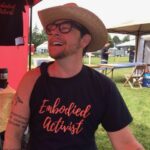
Dr. Liam Snowdon
Kimberly Ann Johnson
Dr. Ellen Heed
Keli Garza
Kris Gonzalez, L.Ac.
"Coocky" Tassanee Boonsom
Dr. Betty Martin
About the Show
We explore the restoration of pleasure, the reclamation of sexual sovereignty, and the realization of our organic sexual wholeness. We engage with leading somatic therapists, sexologists & sexological bodyworkers, and holistic practitioners worldwide who provide practical wisdom from hands-on experiences of working with clients and their embodied sexuality. We invite a deep listening to the organic nature of the body, its sexual essence, and the bounty of wisdom embodied in its life force.
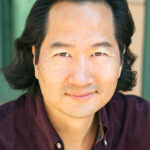
Rahi Chun
Creator: Somatic Sexual Wholeness
Rahi is fascinated by the intersection of sexuality, psychology, spirituality and their authentic embodiment. Based in Los Angeles, he is an avid traveler and loves exploring cultures, practices of embodiment, and healing modalities around the world.
